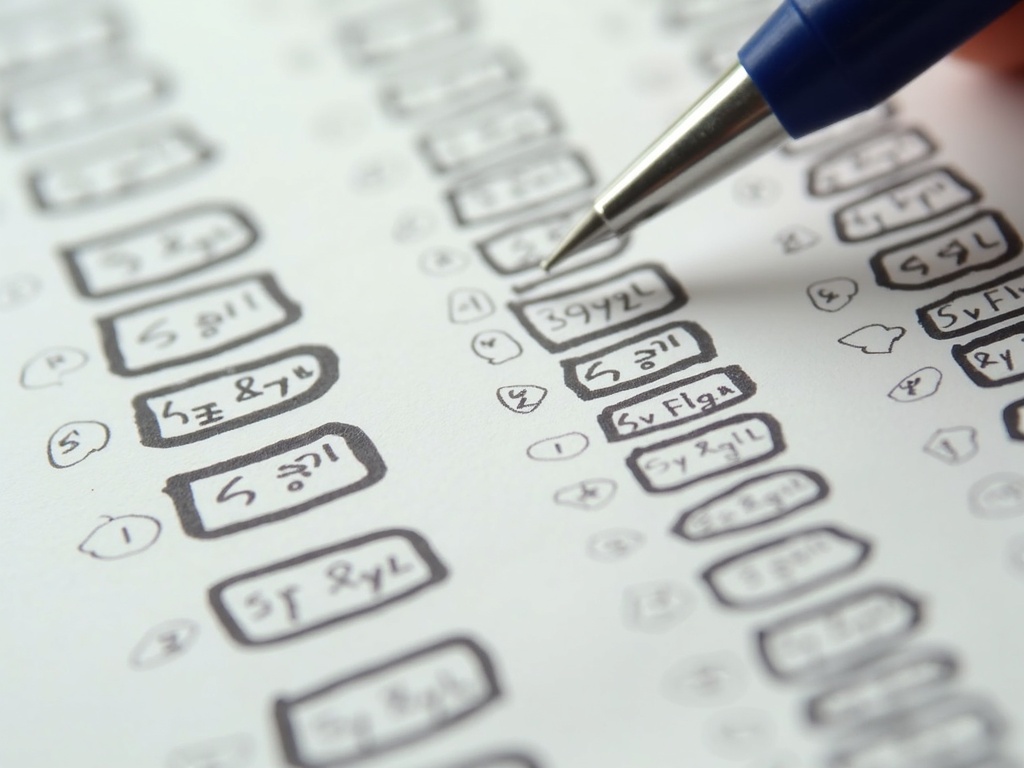Preparing for the IELTS exam day might seem overwhelming, but bringing the right items and maintaining your composure sets you up for success. Guidance on essential items to pack, procedures to follow, and strategies to stay calm will ensure a smooth and focused experience.
Key Takeaways:
- Bring a valid passport or national ID card that matches your registration details. This prevents entry problems.
- Pack items like HB pencils, erasers, pens, and an analog watch. Remember, digital devices aren’t allowed in the exam room.
- Arrive 30 to 60 minutes early for check-in. This allows you to handle security procedures stress-free.
- Prioritize sufficient sleep, a balanced meal, and mindfulness techniques to keep stress at bay.
- Familiarize yourself with the test location and practice time management strategies. This boosts your confidence and performance.
Essential Items for IELTS Exam Day: What to Bring
Before heading to the IELTS exam center, make sure you have the necessary items ready. The most crucial item is a valid ID that matches your registration details. This includes either a passport or a national ID card that’s not expired. Bringing the wrong identification can lead to being denied entry, so double-check before you leave.
Consider bringing a printed or digital exam booking confirmation. This document will help streamline your check-in process with essential test details and venue address.
For paper-based exams, certain stationery items are necessary. Pack HB pencils, erasers, and pens, even though some centers might provide them. You can manage your time better with an analog watch, as digital watches and other electronic devices aren’t allowed. For more details, the British Council offers comprehensive guidelines.
Stay calm and organized to keep your focus on the test.
IELTS Exam Day Procedures and Rules
Arriving at the IELTS exam center requires early preparation due to the check-in process and security protocols. It’s crucial to have your ID ready, as this will be checked against your registration details. You might also undergo digital photo capture and, in some centers, fingerprint scanning. These measures are essential to confirm identity and maintain exam integrity.
To maximize your focus, understand what items are not allowed inside the exam room. Ensure personal items such as bags or electronic devices are stored in designated secure areas, as they’re prohibited in the exam room. This keeps the environment free from distractions and any potential rule breaches.
The IELTS exam structure is consistent. The Listening, Reading, and Writing sections occur consecutively, totaling 2 hours and 45 minutes with no breaks. Familiarize yourself with this format to better pace yourself. Arrive 30–60 minutes early to complete check-in without stress, especially in high-traffic centers like those in the UAE.
Staying calm on test day is key. Preparing your IELTS test day checklist in advance ensures you don’t forget anything important. From knowing the exam structure to following security procedures, being well-organized improves your focus and overall test experience. For additional tips on IELTS preparation, visit the official British Council website, which offers abundant resources and insights to boost confidence.

Staying Calm and Focused: Managing IELTS Exam Stress
Getting enough sleep and eating well can enhance your exam performance. Aim for 7–8 hours of quality rest and enjoy a balanced meal before the exam to perform your best. Familiarizing yourself with the test location ahead of time can help reduce anxiety. Arriving early allows you to acclimate to the surroundings and feel more at ease.
Mindfulness exercises also serve as a great stress reliever. Simple breathing techniques and positive thinking strategies can help manage exam nerves.
Remember to listen carefully to all instructions. Knowing the protocol for addressing issues like illness or technical problems is important. Inform the examiners immediately if something goes wrong.
For further insight into relaxation methods, the Mayo Clinic offers a comprehensive guide on effective stress relievers that might be valuable.

Time Management and Answering Strategies
Effectively managing your time during the IELTS is crucial for success. I recommend wearing an analog watch to effortlessly track the time for each section throughout the IELTS test duration. Always keep an eye on the clock. Harness any spare minutes to review your answers and check for potential errors. Remember, there’s no penalty for guessing on this test, so it’s wise to attempt every question.
Simulation is key. Practice before the exam with timed tests to build confidence and become familiar with the format. This preparation will help you allocate time efficiently and minimize anxiety during testing. For additional resources on time management strategies or sample tests, visiting the official British Council IELTS site can be beneficial.

Avoid Common Mistakes on IELTS Exam Day
Make sure your identification aligns with IELTS essentials by bringing the correct, non-expired ID. Showing up with the wrong ID might lead to being denied entry. Always double-check your identification the day before to stay on the safe side.
Test centers enforce strict check-in protocols. Arriving late isn’t an option; you could miss your slot. Be sure to understand and follow check-in windows.
Reading any center-specific instructions ahead of exam day helps you sidestep potential confusion. Each test venue might have unique guidelines, so don’t ignore them. If you’ve got instructions sent by the test center, review them carefully. Remember, preparation and verification pave the way for a smoother exam day.
For additional details about ID requirements, you might visit IELTS’s official website. They often have the most up-to-date information to assist you in preparing effectively.

Understanding IELTS Exam Context and Trends
Millions sit for the IELTS exam every year, with up to 3 million tests taken globally. This widespread participation highlights its significance in academic and professional settings. Advancements in technology have shaped the testing landscape, enhancing security and authenticity. In some centers, candidates experience state-of-the-art fingerprint scans and other identification methods. These technologies may differ across various exam centers, emphasizing the importance of familiarity with local specifics.
Trends in IELTS preparation have evolved, with digital resources and online platforms becoming central to study strategies. Test-takers often utilize these tools to access practice materials and simulate test conditions. Knowing global guidelines is crucial, but for those taking the test in specific regions like the UAE, understanding localized rules is equally important. Each IELTS exam center in the UAE may have distinct regulations, necessitating thorough preparation to avoid any unnecessary surprises on the exam day.
Test center rules might include prohibitions on certain items and specific procedural requirements. Being aware of these can streamline the experience and minimize stress. Staying informed ensures that candidates are well-prepared for both the test content and the administrative aspects of the exam. It’s beneficial to visit authoritative sites like the British Council or IELTS Essentials for detailed guidelines. Understanding these trends aids in effective preparation, contributing to a calm and confident test day experience.
Sources:
Magoosh – “IELTS Test Day Checklist”
IELTS IDP India – “IELTS Test Day Tips”
Fateh Education – “IELTS Exam Documents Checklist”
Gateway Education – “IELTS Exam Day”
iSchoolPrep – “IELTS Test Day: What to Expect”
IELTS Liz – “IELTS Exam: Tips on the Day”
IELTS IDP India – “On Test Day (Blog)”

2 Comments
[…] UAE boasts a wide array of IELTS test centers, strategically situated in key cities such as Dubai, Abu Dhabi, and Ras Al Khaimah. […]
[…] 2025, the IELTS exam stands as a key measure for evaluating English proficiency in major global hubs like the United […]